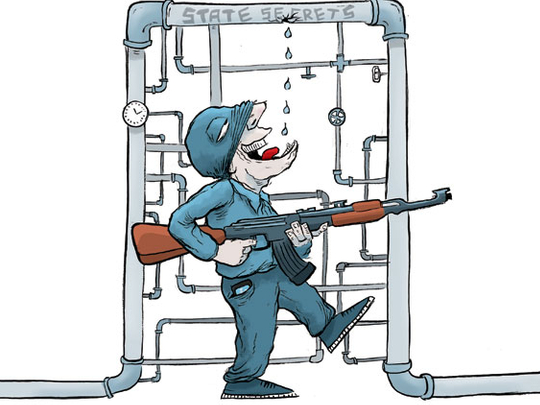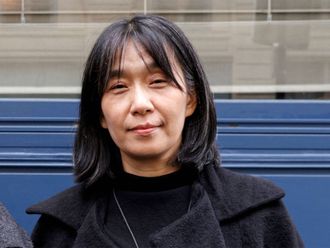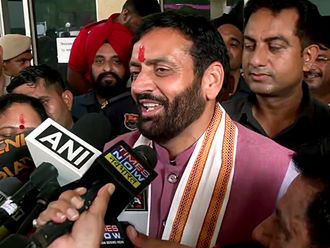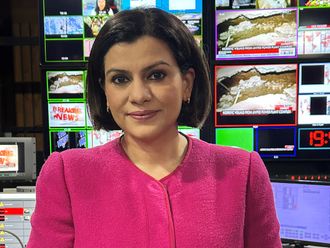
As our region grapples with multiple crises, flashpoints and the potential outbreak of war between countries at odds with each other, newcomers have recently emerged as regional and international players. These non-state actors have complicated things even further.
In recent weeks, non-state actors such as Al Qaida, WikiLeaks and BP have captured the headlines.
From the tree incident on the Lebanese-Israeli border, to the mysterious rocket attacks in Eliat and Aqaba, to the severing of limbs in violent attacks — there are countless incidents in which non-state actors make their presence felt. Recent major events include the suspected terrorist attack on the Japanese oil tanker M Star in the strategic Strait of Hormuz, WikiLeaks' release of graphic and classified information on the brutal reality of the war in Afghanistan and the stand-off over BlackBerry messaging services. In the case of the latter, countries such as the UAE, Saudi Arabia, Lebanon, India and Indonesia are concerned that potential terrorists could use BlackBerry's encrypted messaging services to plan attacks, and that security services would not be able to monitor these messages. They are therefore demanding that Research in Motion, the Canadian manufacturer of the BlackBerry, grant them the ability to intercept and decrypt these messages.
Clearly, non-state actors such as those mentioned above have emerged as players that cannot be ignored on the world stage. Their actions have major repercussions and influence which have to be taken seriously and addressed by all states — developed and developing alike.
Looking ahead
In November 2008, the US National Intelligence Council published a report titled ‘Global Trends 2025: A Transformed World', in order to stimulate strategic thinking about the future by identifying key trends, the factors that drive them, where they seem to be headed, and how they might interact. Among its projections and forecasts was that: "A global multi-polar system is emerging with the rise of China, India and others. The relative power of non-state actors businesses, tribes, religious organisations, and even criminal networks also will increase". It seems the foundations of that new system are already in place.
Although the US State Department's most recent Country Reports on Terrorism note that "the frequency ... of international terrorist attacks continues to drop", it also observes that "Al Qaida and Islamist extremism remain an adaptable and covertly-recruiting foe — as witnessed by the growing number of cases of home-grown Muslim radicals".
In 2009, approximately 11,000 terrorist attacks occurred in 83 countries, affecting over 58,000 people and resulting in nearly 15,000 fatalities. In that year, attacks decreased by six per cent and deaths by five per cent. The largest number of reported terrorist attacks occurred in South Asia. "As has been the case since 2005, substantial numbers of victims of terrorist attacks in 2009 were Muslim. Almost 58,000 individuals worldwide were either killed or injured by terrorist attacks in 2009. Based upon a combination of reporting and demographic analysis of the countries involved, well over 50 per cent of the victims were Muslims, and most were victims of Sunni extremist attacks," the reports said.
What was of peculiar interest in this regard was the admission by the US, the superpower of our time, that the main threat to its homeland security and its national interest abroad is not a state actor or a nation, but Al Qaida. This is a staggering admission. After almost nine years of relentless war and a collective counter-terrorism effort, the US and its allies continue to struggle against non-state actors such as Al Qaida, the Taliban and other radical movements.
Unusual situation
By the same token, the Pentagon, the symbol of US might and hard power around the world, which accounts for half the world's military expenditure, finds itself helplessly appealing to WikiLeaks to remove from its website 77,000 classified documents about the war in Afghanistan, and return about 15,000 additional documents that it has not yet made public. The Pentagon claims that these documents "gave the Taliban and other militant groups insights into American military tactics and techniques". Pentagon officials are especially concerned that WikiLeaks has so far not removed identifying information.
The phenomenon of the rise of the different types of non-state actors seems to be here to stay, and they are likely to grow ever more potent and influential in the future, as the US intelligence body has forecasted. The challenge for all countries is to attempt to deal with, co-opt and cajole these non-state actors in a way that lessens their negative and unintended consequences, without compromising our freedoms, access to information and the benefits of their output.
Dr Abdullah Al Shayji is the chairman of the Political Science Department at Kuwait University.











